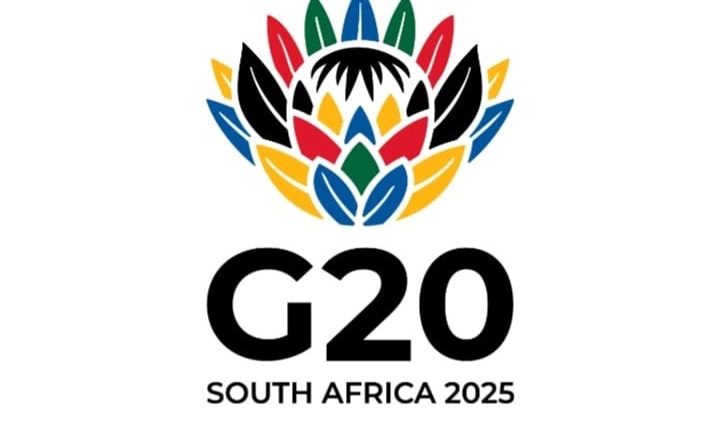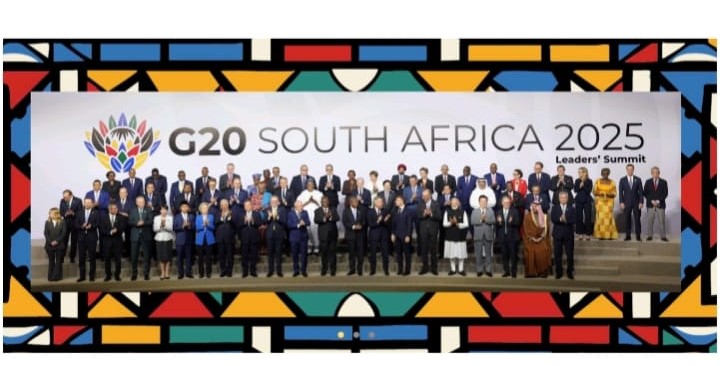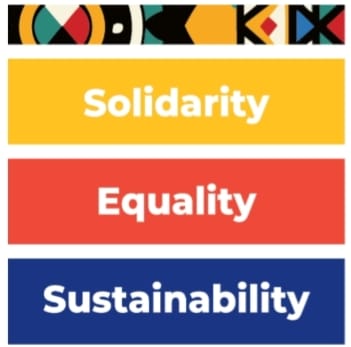“The world is here, the African continent is here, [global] institutions are here. Multilateralism has been affirmed. The multi-polar world is in real action.”
By Smita
November 26, 2025
youtube.com/@theflagpost
Under the chair of South Africa, the G20 Summit (2025) inaugurated with a spark of controversy emerging from the absence of two major global economies, i.e., United States of America and China, both of whom skipped the summit. Under the theme, “Solidarity, Equality and Sustainability” South Africa hosted a historic G20 that marked a defining moment in global politics.
While Africa has long been viewed as an open reservoir of precious metals, critical minerals and petroleum available for exploitation, this decade has witnessed a significant shift in the continent’s global perception. From being portrayed as exploited, colonized, and a cluster of under-developing nations, Africa has now emerged as a key player in global governance. It has begun raising its voice firmly against exploitative and exclusionary policies, in alliance with countries of the South-South Cooperation.
The 2025 G20 summit held for the first time on African soil, at Nasrec Expo Centre which also stood out as a symbolic milestone in bridging divides. Nasrec Expo Centre is situated between two historically segregated spaces of Soweto (a historically Black township) and Johannesburg North (a historically white area) highlighting South Africa’s vision of closing the gap between the Global North and the Global South. The Summit further reaffirmed multilateralism, signalling a truly multipolar world order is in motion.
A major breakthrough came in the adoption of the G20 Leaders’ Declaration, unanimously supported by all present members. The declaration was widely viewed as revolutionary for Africa and the Global South, particularly for its emphasis on digital transformation. It stressed that Africa should not remain merely a consumer of technology, but must evolve into a producer and innovator of technology which requires skills and capabilities enhancement in AI, development of digital infrastructure, data centres, and innovation ecosystem for effective youth participation and their future integration into the global digital economy.
On the other hand, India stressed on countering drug terror nexus; global healthcare response team with trained health professional while developing Global Traditional Knowledge Repository which can help in regulating the traditional knowledge system and healing practices and developing research on effective traditional medicines. India also advocated for critical technologies to be guided by humanistic values instead of economic gains where technologies are not restricted to national boundaries but applicable and available as open source.
The G20 also gave rise to new democratic partnership that will connect three continents and three oceans initiative called ACITI (Australia-Canada-India Technology and Innovation) to deepen cooperation on critical and emerging technologies with resilient supply chains, and clean energy.
This G20 also echoed strong voices for building a “Just Future for All,” where G20 nations (G19 excluding the USA) emphasized the need for reforms in procurement and exploitation of critical minerals; adaptation and policy reforms for a sustainable environment and climate; financial restructuring including development aid and debt mechanisms; technology transfer; counter-terrorism; and the fair, transparent and ethical use of Artificial Intelligence for collective global growth. On the land of Mandela-Gandhi, the leaders from G20 member nations collectively called for multilateral cooperation to address shared challenges for mutual growth.
(The Author is a Senior Research Fellow, @ the Dept. of African Studies, Univ of Delhi, India)




